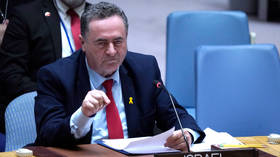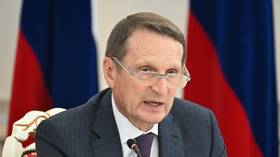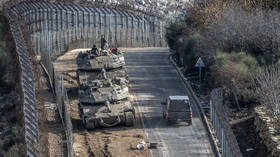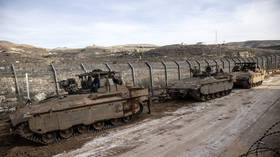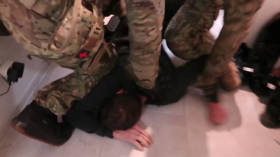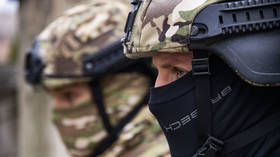Post-war Georgian politics
Georgia's non-governmental organisations have urged the EU to launch a thorough enquiry into alleged human rights violations in South Ossetia. Some Georgian experts are uncertain about the political stability of President Saakashvili's government and call
It’s now known that some members of the Georgian opposition were against an attack South Ossetia last August. They tried to stop President Saakashvili from rash actions and now that he failed to comply, there are calls for the Georgian leader to resign.
But some members of the opposition like Shalva Natelashvili the head of the Labor party thinks all is already lost.
“It doesn’t matter if he resigns or not – there is already permanent damage done: we have lost Abkhazia and South Ossetia for good. If Saakashvili didn’t attack Tskhinval then the Russian air force wouldn’t have taken off and the Kremlin wouldn’t have had reason to recognise these republics,” Natelashvili said.
Amid rumors opposition protests could begin outside the parliament Natelashvili says it’s just not worth it:
“We will not protest, we already protested last year and Saakashvili used chemical weapons on us.”
Georgia has a large opposition and their views do vastly differ. What Natelashvili calls fact may be considered far fetched by others. He says the root of last month’s conflict doesn’t lie with Georgia or Russia, but thousands of kilometers away – in Washington – which, he says, put Saakashvili in place four years ago during what is known as the Rose revolution. According to Natelashvili, a now familiar face was doing all the negotiating at the time.
“John McCain sat right here in this room and asked us to take part in the Rose revolution,” Natelashvili claimed.
The Russian envoy to NATO Dmitry Rogozin says Georgia’s connection to the US shows just how complex the situation really is.
“The situation in Georgia is getting more complicated. It’s proven by the fact that Nino Burdjhaidze – the former leader of parliament – has not yet returned from the United States. The Americans are likely to back her the same way they did with Saakashvili before,” Rogozin pointed out.
Whether early elections will be called for by the opposition is still unclear, but for now the parliament is made up of those who support Saakashvili and those who don’t.
The latest bill being discussed is a Georgian “patriot act”, similar to the one the US passed just after 9/11. It would give the Security services more rights and citizens fewer. Saakashvili has supported the bill while the opposition is strongly against it. One member of parliament has even been quoted saying:
“Let me listen to Saakashvili’s telephone conversations and then I’ll tell you what a makes a real Georgian patriot.”


